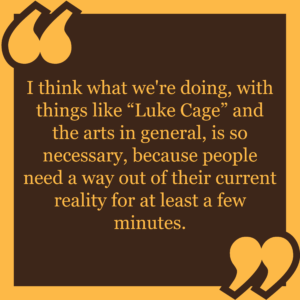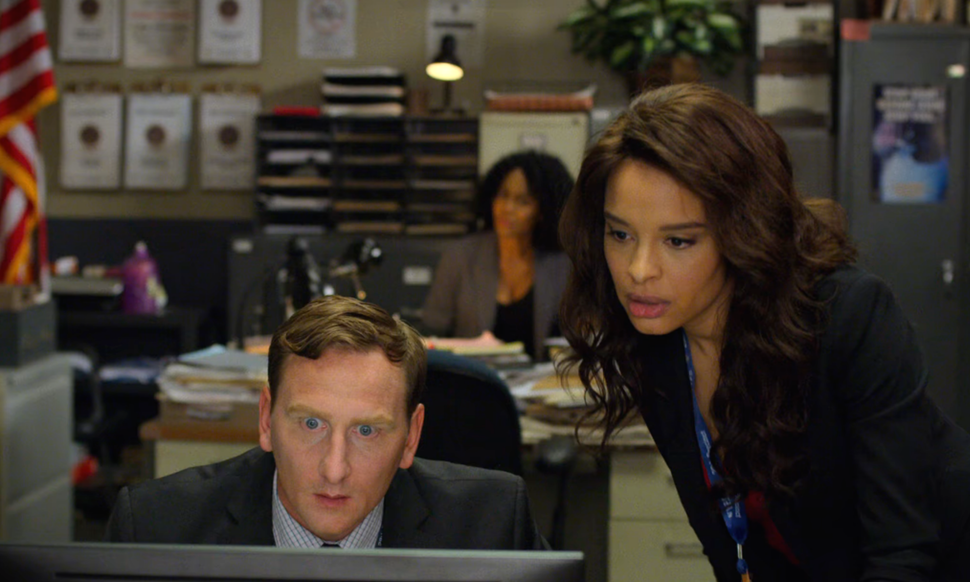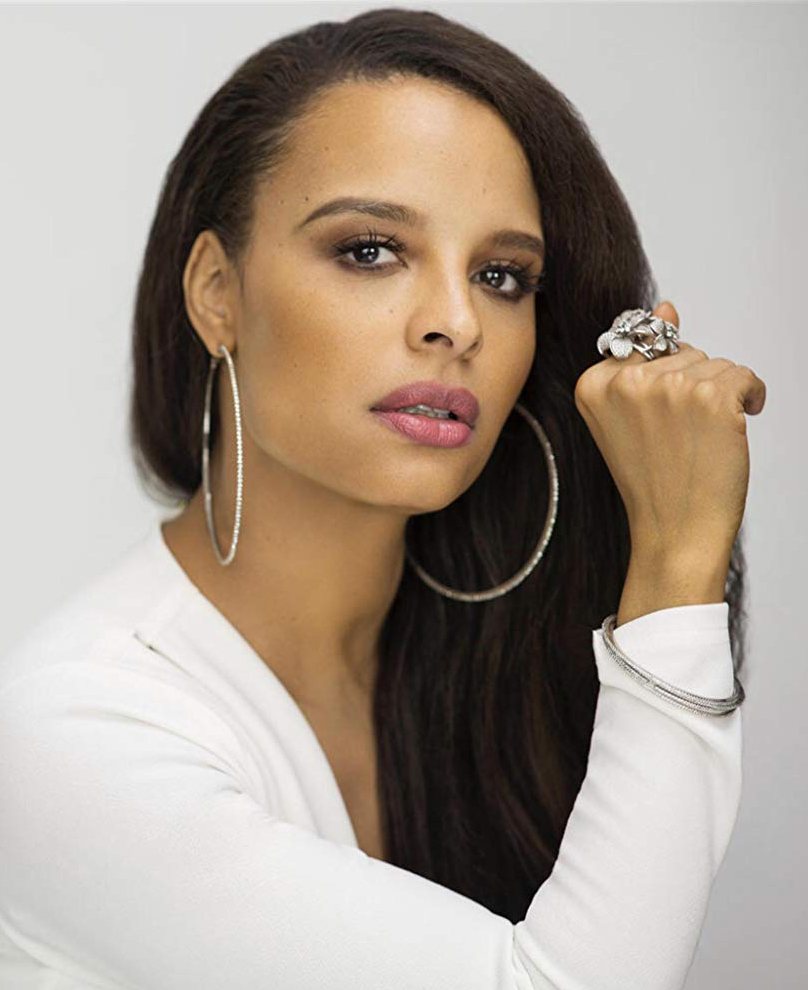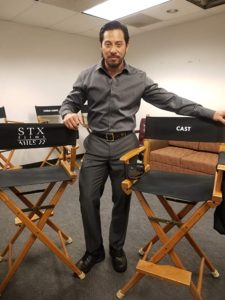
As sinister as he can be on film, which is on display in his latest project “Mile 22” opposite Mark Wahlberg, Sam Medina is nothing like his on-screen persona in the reality that we all call home. Affable and eager to discuss the filmmaking process, the Vietnam-born actor is reveling in his current run of projects, which also includes the upcoming “Venom,” “Alita: Battle Angel,” and his directorial debut, “Code Name The Dragon.”
We recently sat down with Medina to discuss the pinch of strangers, why his journey to Hollywood was part of a matrix-like design, and the reason his character’s hands only get dirty when they need to in “Mile 22,” which opens in theaters on August 17.
TrunkSpace: You have a whole lot cooking between now and the end of the year. It must be a crazy, exiting time for you?
Medina: It is an amazingly exciting, crazy, chaotic time, and I love every single minute of it because you can’t just have the good. You also have to have the bad, whatever that might come with it. You have to accept it all. The schedule is crazy. Work is crazy. The road is crazy. But I mean, you live for this. I live for this. I dreamed of this before, so believe me, brother, I’m probably going to talk to strangers today and ask them to pinch me. (Laughter)
TrunkSpace: You spent the first 12 years of your life in Vietnam before coming to the States. When did the dream start? What was it that sparked performing and everything else you’re currently working on?
Medina: Well, I was a musician. I was a producer for a lot of rap artists and R&B singers down south. I was always conducting, producing, and kind of directing rappers on how and what kind of songs we should do with the beats that we were making. But the passion for filmmaking and becoming an actor happened after Katrina. It was by design. I can’t really tell you it was a choice at first. It was by design – like if we were living in the matrix, because after Katrina there were no jobs in New Orleans, Louisiana. I was just one of those guys outside of Home Depot and Lowe’s, doing construction work. I was getting sick, and I was just speaking into the universe that I needed to do something else before I died from smelling all of the mold. That was 12 years ago.
The number 12 kind of is lucky for me, I guess, because I moved here when I was 12 and it’s been 12 years ago since I started this film career.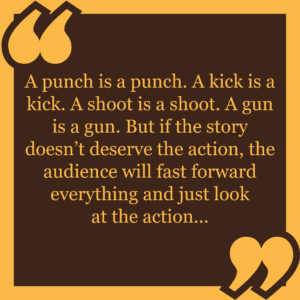 And now we’re having a conversation about it. So I think the number 12 might be a lucky number for me.
And now we’re having a conversation about it. So I think the number 12 might be a lucky number for me.
TrunkSpace: Someone might see your work in “Mile 22” and say, “Sam Medina is an overnight success,” but like you said, you’ve been at this 12 years now.
Medina: Yes, and I also studied many, many great ones that came before me. Most of the “overnight” to people, it’s usually a 20-year career span, so I still have another eight years to really make a mark. (Laughter)
TrunkSpace: “Mile 22” is an action film, which are always a fun ride for viewers, but in terms of production, they’re the most technical to shoot, correct?
Medina: Yes, it’s the hardest. The action has to be shot with a preface, which is a set of videos by the team – the stunt coordinator, fight choreographer – they put this stuff together. They hire stunt performers. They do the action. They shoot clips of it. They send it to the director. The directors and studios approve it before we even get to set to shoot. If they don’t, we change it. So technically action, for the audience to continually be engaged, is the hardest thing to do. You can see a scene that lasts 30 seconds on screen, but it probably took over two weeks to film and maybe two weeks to prep.
TrunkSpace: In the trailer your character Axel, the big bad of the film, comes and goes in a very ominous way. We don’t get to see him get into any of that nitty gritty action fighting in the trailer, but is it safe to assume that we will see some of that?
Medina: You will see some of it, but with Peter Berg, the director, the way that he wanted to design the film, it was slightly different. I’m the head honcho, so my hands only get dirty when they need to get dirty. (Laughter)
TrunkSpace: The film has a thriller element too, which in this day and age, audiences really seem to expect that multi-layered entertainment. There aren’t a lot of films that are just one thing anymore.
Medina: Right. There’s so many underlying tones, and so many layers to the film. That way you keep the audience engaged. Once you watch it, you will go back through it you and will say to yourself, “Oh, okay now I understand why they did it with that, why they did this, why this was this and why that was that in the story.” Yes, audiences are smarter now and in order for you to keep the audience engaged, you have to service the audience. They deserve more.
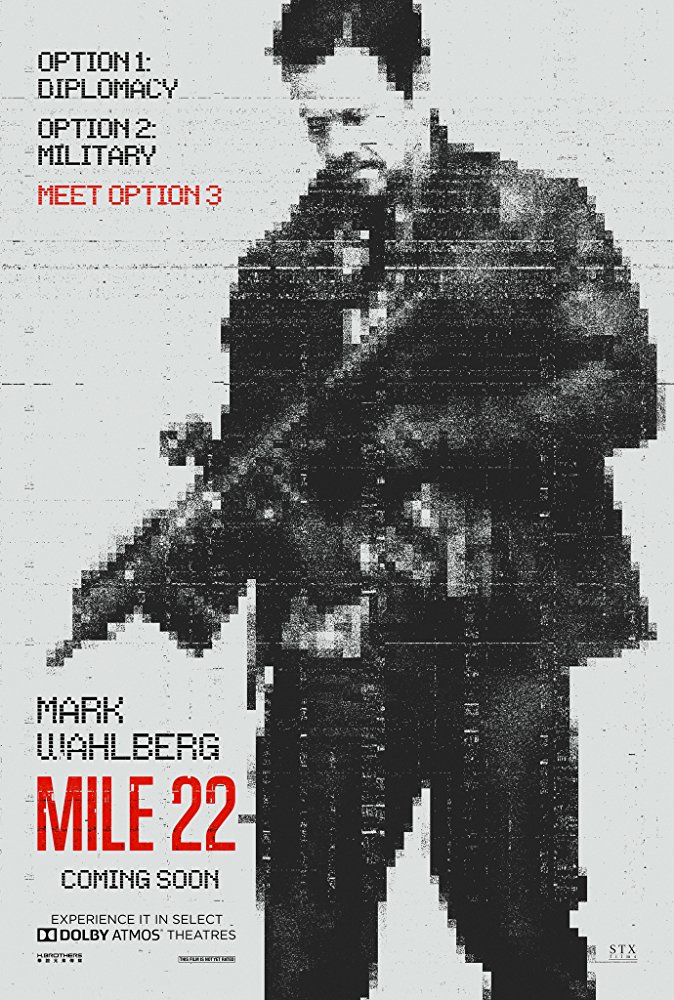 TrunkSpace: With so much really great television nowadays as well, audiences seem to be looking for more character-driven material that plays out in a longer way. And we know you have your directorial debut coming up later this year, so we’re curious if that is something that you think about from both sides of the camera now?
TrunkSpace: With so much really great television nowadays as well, audiences seem to be looking for more character-driven material that plays out in a longer way. And we know you have your directorial debut coming up later this year, so we’re curious if that is something that you think about from both sides of the camera now?
Medina: Of course. I’ve been blessed in my life. I’ve been lucky and blessed. I work extremely hard, but once again, I have to say that it’s the way how it was designed. It was destined. My resume includes so many legendary directors and I watch every single one because that helps me with my first feature that I’m debuting this year. I’ve taken everything I’ve learned from them to make it my own style.
You do have to serve the audience in a story. A punch is a punch. A kick is a kick. A shoot is a shoot. A gun is a gun. But if the story doesn’t deserve the action, the audience will fast forward everything and just look at the action, whether it’s a shoot-em up or a fight movie. So for me as an actor, if I’m looking at a part – or as a director – I want to look at the story first. You have to have a story to earn the right to the action, to earn the right to a shootout. Then the audience will understand. “Now I understand why this is happening!” So yes, storytelling is really key.
TrunkSpace: Well, and there’s an element too of being invested in the character so when there is that shootout, there are real stakes for the viewer as well. You don’t want to see your favorite character hit by a bullet.
Medina: Of course. You are 1,000 percent correct, my friend. Everything is about the story, because just like you say, if the audience is not vested into your characters that you lay out at the beginning of the movie, then they don’t care. They won’t go on that journey that you’re trying to take them on as an actor, as a filmmaker, or whatever it is you’re trying to do. They won’t go on that ride with you, so you have to create characters where they want to take that ride with you, and they sit in the theater for two hours to watch.
TrunkSpace: In terms of your performance as Axel in “Mile 22,” so often we hear actors say that in order to play a big bad or just a bad guy in general, you don’t view them as bad. It’s that you have to try to find their particular motivation for the actions that they’re taking. Is that how you approached Axel?
Medina: Of course, because I believe, and I’m sure you do and many other people also do as well, the villain wasn’t always the villain at one point. At some point, something or someone happened, and then he had a change of heart. But he has a purpose to it. He has a point of view to it. Just like the hero has his or her point of view, the villain also has his or her point of view as well. And because they have different point of views, when you put them in the room together, you want to see who is going to win. There it goes back to your statement, the stakes are high as hell, because now they’re trying to impose their point of view on each other, and so you have a great story.
You have to have a great villain, but I also wanted to play the villain to where you actually believe why I do what I do, just like you believe the hero has the right to do what he does too, in this case it’s Mark Wahlberg and his whole team.
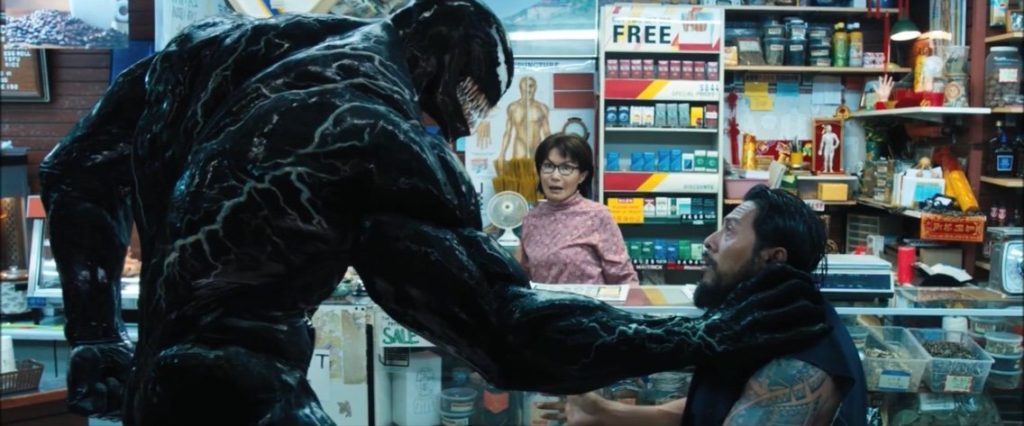
TrunkSpace: You recently appeared in a great segment of the latest “Venom” trailer. As an actor, you can probably never anticipate what will happen day to day, even down to the point of whether your performance will wind up in a particular scene or trailer. Do you find yourself getting emotionally invested in everything that you do, or do you have to keep each job at arm’s length to, in a way, sort of protect yourself?
Medina: Well it’s hard, because I think that it’s in individual cases, but for me my heart is always in it. I was in the first “Ant Man” and when me and the Colonel in the Hispanic army got edited out of the film, I was devastated. That was my first Marvel movie. For me, I’m invested in every project that I do. I can’t step away from it, because I love every aspect of the filmmaking process, from the beginning to the end and during. I do invest a lot. I do go up and down with myself, because sometimes you don’t make edits in a movie. Sometimes you make the trailer, sometimes you don’t. But for me, if I don’t care, then why would I do it?
Yes, it can be a letdown, but it can also be a letup. As actors, as filmmakers, we live on the creed of hope. We hope for the next job. We hope that the film we make is well received by the audience, so I have to live by the creed of hope. For me, I definitely get invested, and I definitely get my heart broken many times. But if you think about it, we audition for a thousand roles before we book one.
“Mile 22” opens today.
“Venom” opens October 5.
“Alita: Battle Angel” opens December 21.


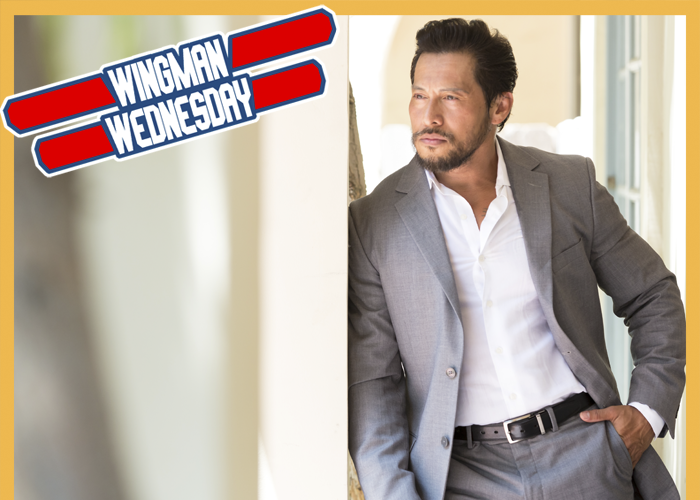

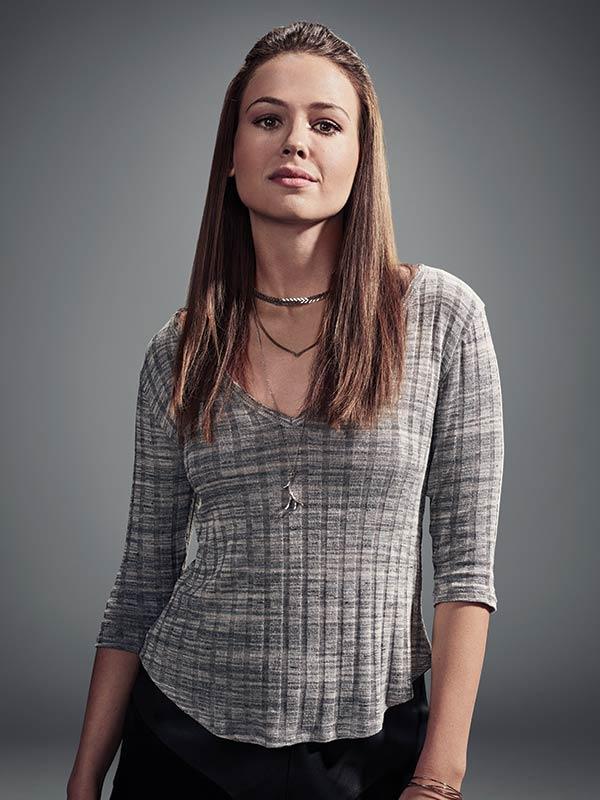 W
W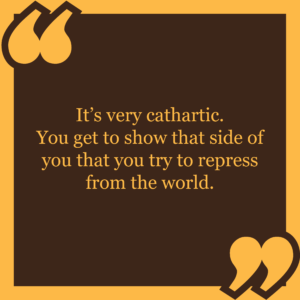 to an audition – this happened to me twice this year – but I go to an audition and I see someone I watch on TV and we’re going for the same role and I’m like, “Oh my god, I love you.”
to an audition – this happened to me twice this year – but I go to an audition and I see someone I watch on TV and we’re going for the same role and I’m like, “Oh my god, I love you.”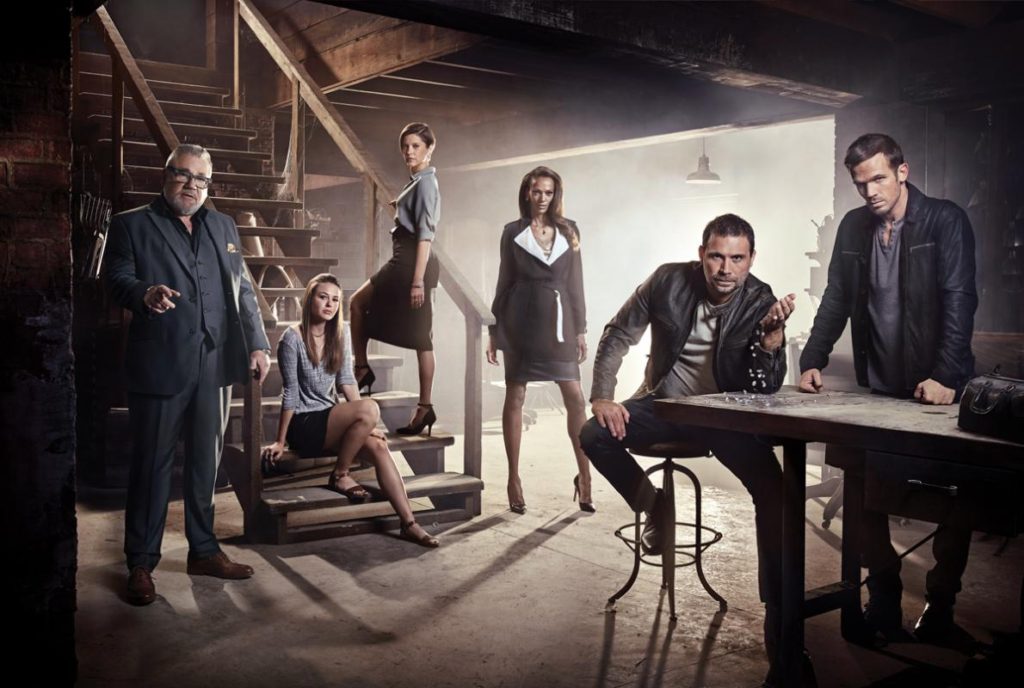
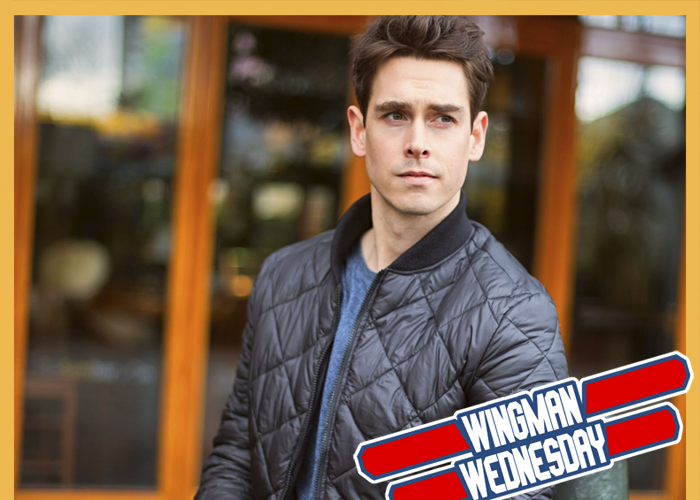
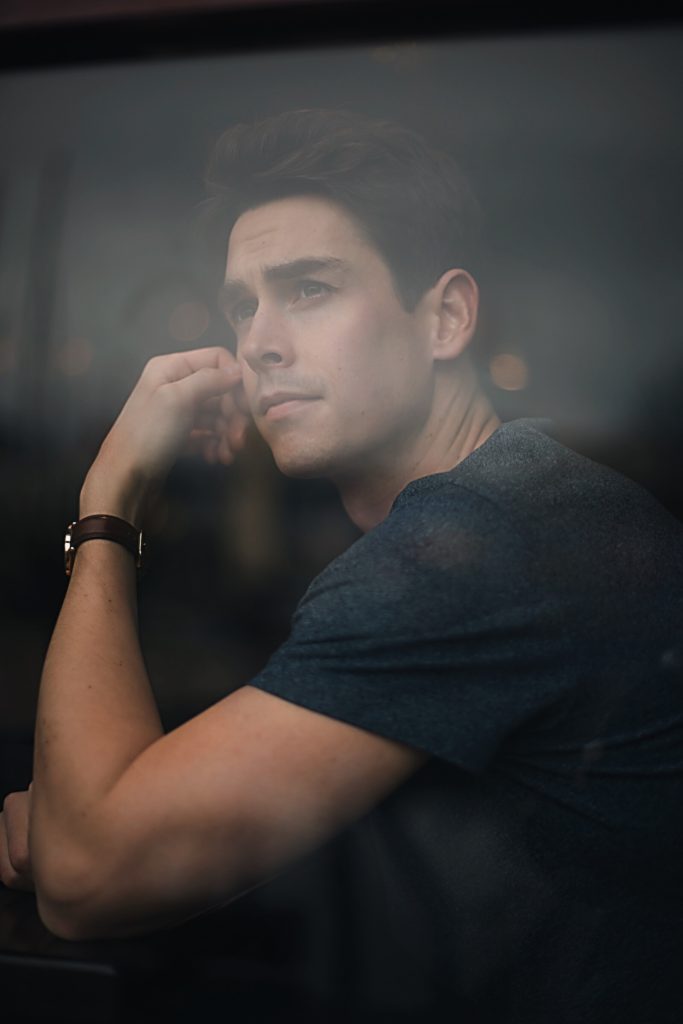
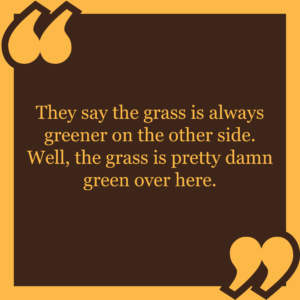 to pay your dues until you got the call to the big show?
to pay your dues until you got the call to the big show?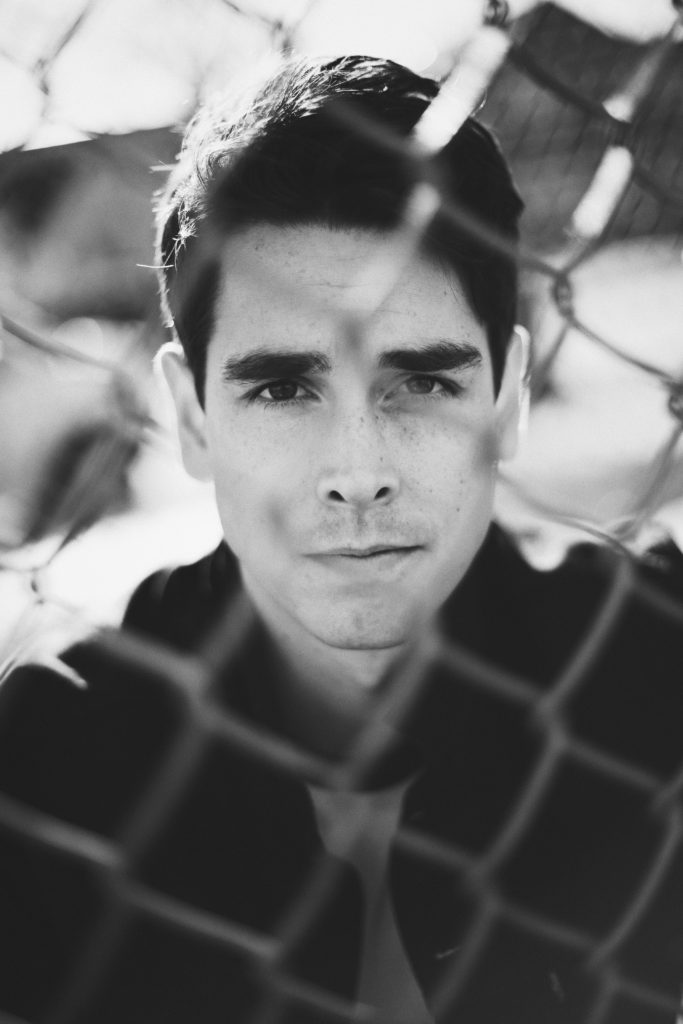
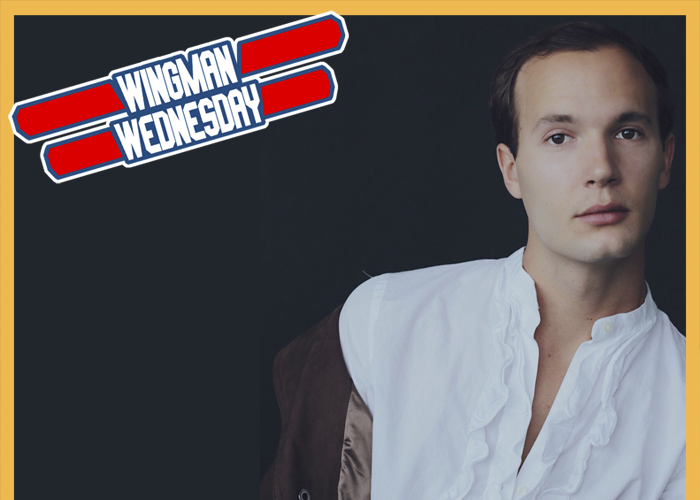
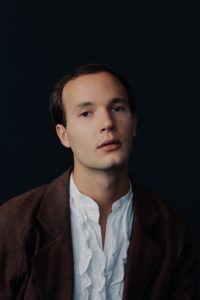
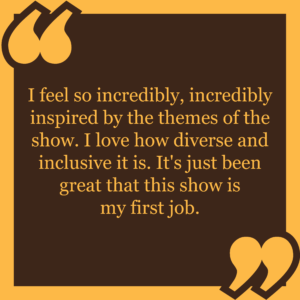
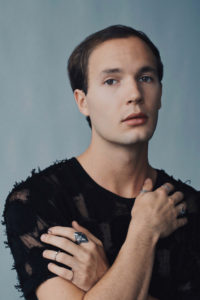


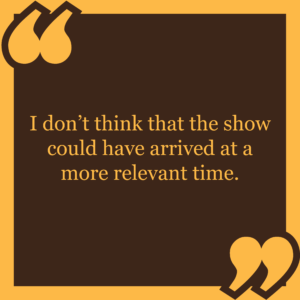 the same time, is dropped into a world that is foreign to you (the ‘70s) and have an opportunity to play in a space that feels new?
the same time, is dropped into a world that is foreign to you (the ‘70s) and have an opportunity to play in a space that feels new? TrunkSpace: You’re headed off to Harvard University in the fall. First, as Boston peeps, welcome to the city! Secondly, have you given thought to how your two workloads – career and school – will intermingle and how they will impact each other? Will you be stepping back a bit from acting while attending classes?
TrunkSpace: You’re headed off to Harvard University in the fall. First, as Boston peeps, welcome to the city! Secondly, have you given thought to how your two workloads – career and school – will intermingle and how they will impact each other? Will you be stepping back a bit from acting while attending classes?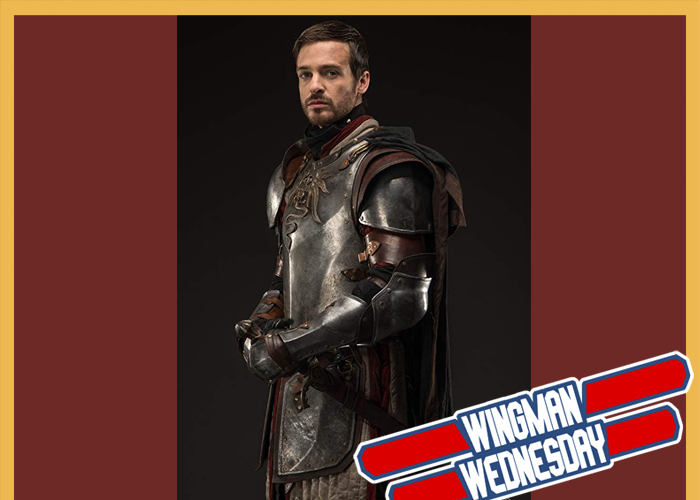
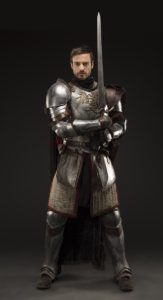
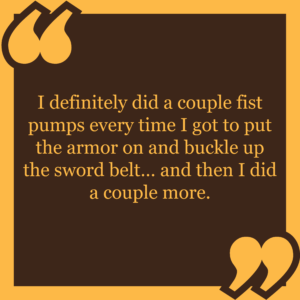 at doesn’t mean his mind isn’t racing with questions, answers, emotion and struggle. These are things that we as humans battle in ourselves universally, and I do hope that our international audience can all find something to relate to in Garret. That was the goal, at least!
at doesn’t mean his mind isn’t racing with questions, answers, emotion and struggle. These are things that we as humans battle in ourselves universally, and I do hope that our international audience can all find something to relate to in Garret. That was the goal, at least!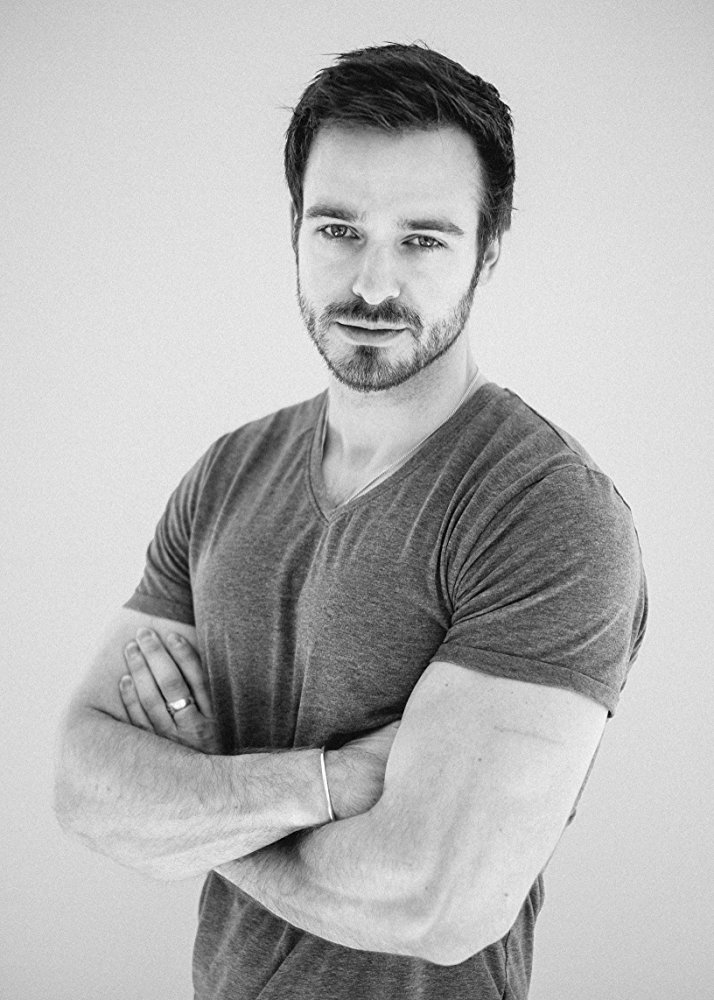
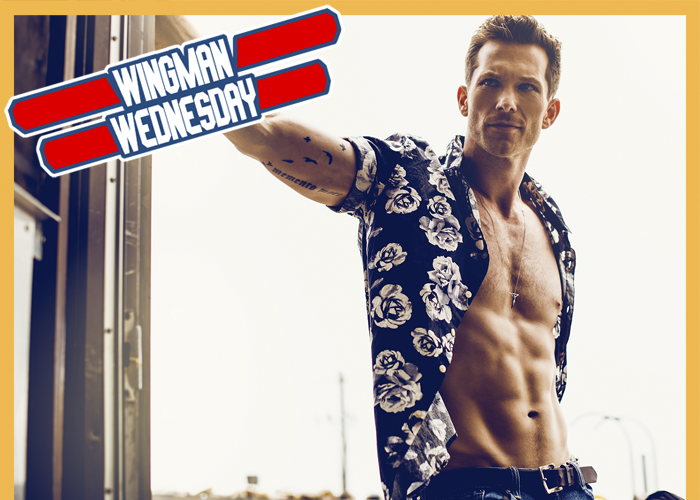
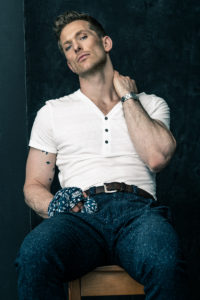
 professional career. Do you hope your performance as Bryce opens up more doors in that area so that you can continue to tap into the funny?
professional career. Do you hope your performance as Bryce opens up more doors in that area so that you can continue to tap into the funny?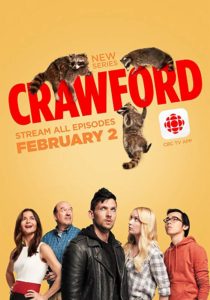 TrunkSpace
TrunkSpace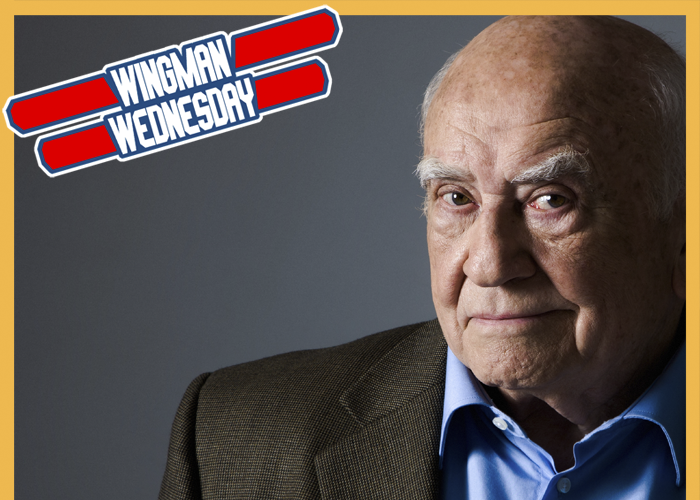
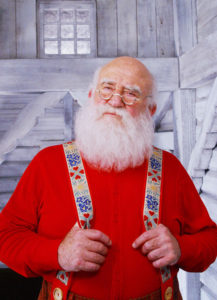
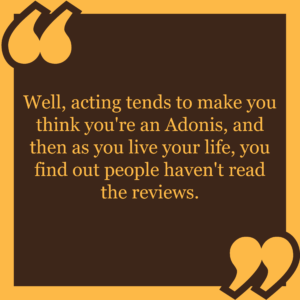
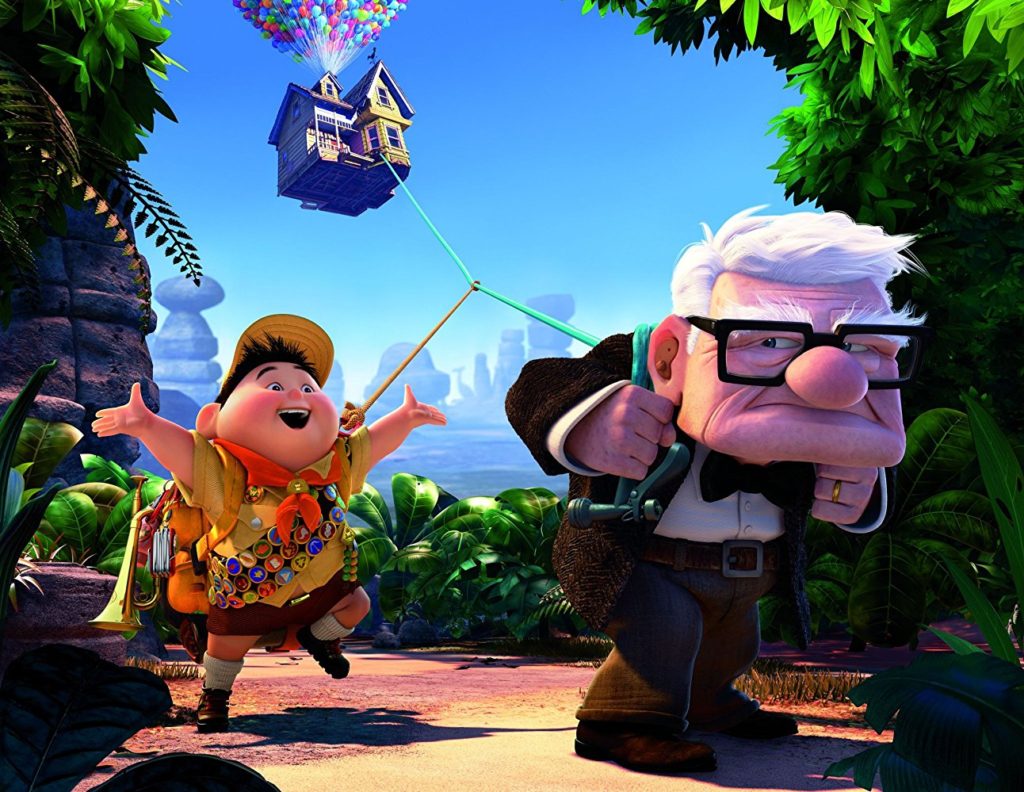
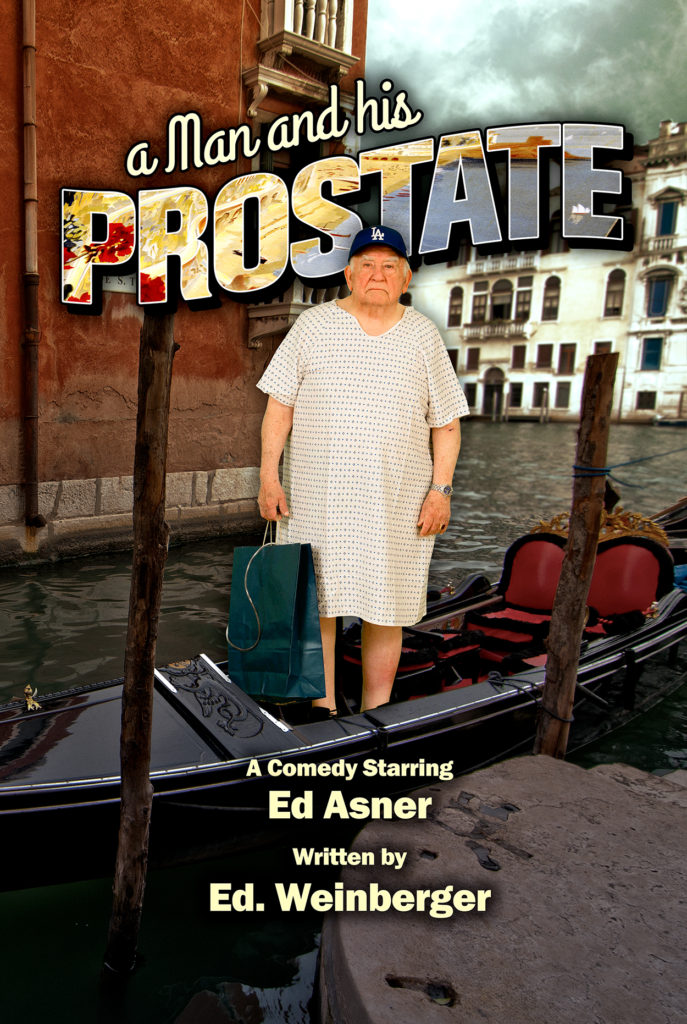 TrunkSpace
TrunkSpace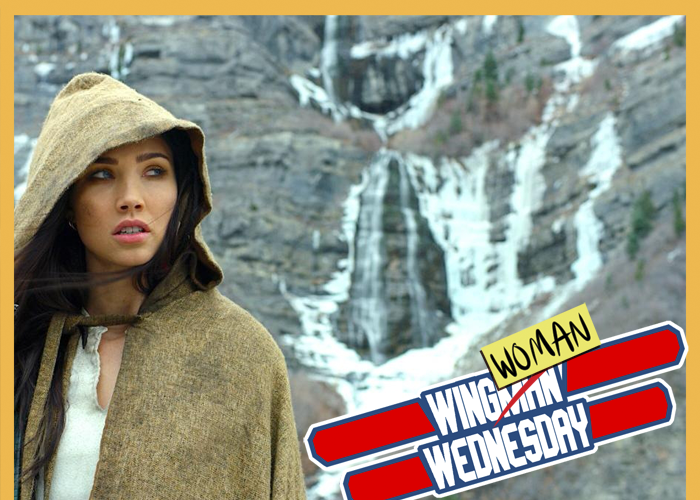

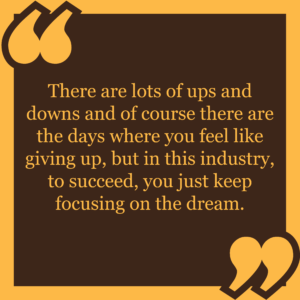 you’re also enjoying the moment and everything that comes along with it?
you’re also enjoying the moment and everything that comes along with it?

 A
A